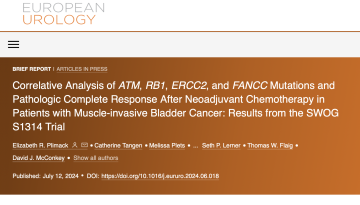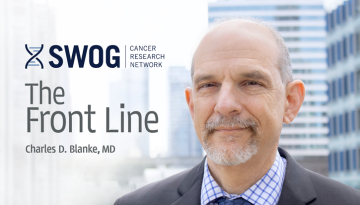Diversity, Equity, Inclusion: Year of Action
As have other organizations, SWOG Cancer Research Network strongly acknowledges systemic racism and its effects on clinical trials, clinical trialists, and clinical trial participants.
We’ve conducted high-impact research on health disparities, pioneered new approaches to recruit minorities to our trials (e.g., SELECT), and formed a recruitment and retention committee to improve diversity in SWOG leadership, membership, and trial participants.
Then 2020 hit. Thousands of people of color died from COVID-19, and millions marched in support of the Black Lives Matter movement. It became crystal clear that we need to strengthen – and speed up – our efforts around diversity, equity, and inclusion.
I’m excited to report to you a series of SWOG initiatives rolling out in 2021 that will both support our big-picture strategic plan and provide practical tools to increase diversity. These initiatives are the result of a grassroots effort led by our patient advocate and recruitment and retention committees and funded by The Hope Foundation for Cancer Research.
Here is what you can expect in the coming months as we increase diversity and reduce health disparities among racial and ethnic minorities, members of the LGBTQ+ community, the very young and the very old, rural residents, and other underrepresented groups:
- February – The Hope Foundation is sponsoring a second installment of their “Crucial Conversations” panel series on Friday, Feb. 5 at 12 noon CT. The one-hour panel is titled “Diversity, Equity, and Inclusion at SWOG: Moving from Intention to Action” and will feature six SWOG leaders who’ll talk about real steps SWOG members are taking to enroll more diverse participants into our cancer clinical trials. Register here: https://bit.ly/3qQoUTE
- April – The patient advocate committee is gearing up to bring on four additional community advocates by the spring group meeting. These advocates will bring unique perspectives from underrepresented cancer communities, and help inform our trial design and management. The new advocates will represent the LGBTQ+ community, advanced/metastatic cancer patients, rural patients, and caregivers. Community advocates have already been appointed to represent adolescents and young adults, older adults, military veterans, Black patients, Latinx patients, and Asian-Pacific Islanders.
- April – We will hire a consultant to look at diversity, equity, and inclusion at SWOG from the very top. This means looking at our group’s diversity, equity, and inclusion plans and practices, policies, hiring and recruitment, and resources. The consultant will talk with stakeholders, investigate institutional best practices, and file a report with recommendations for ways we can better diversify our membership and leadership, and perform as an equity-focused team over the short- and long-term and aligned with the SWOG strategic plan.
- May – Thanks to Dr. Allison Caban-Holt, our recruitment and retention committee chair, Hope will fund six liaisons from the committee to serve in select committees so they can work directly with our protocol-producing teams. By embedding the experts into our committees, they can bring their expertise in minority recruitment to bear in all phases of the clinical trial lifecycle using the TeamScience@SWOG Module Six methodology.
- June – By June, we expect our TeamScience@SWOG Module Six will be available to all members, on SWOG.org. Spearheaded by Rick Bangs, our patient advocate chair, this Genentech-funded and Hope-supported training initiative lays out a methodology by which we can better enroll underrepresented patients to our trials. The training, which was significantly shaped by our patient advocate and recruitment and retention members, will revolutionize how we plan for, and execute on, diversity, equity and inclusion for our volunteer participants. To ensure the training rolls out effectively and consistently among all our stakeholders, Hope is hiring an implementation science fellow – a first for SWOG and Hope – to oversee the TeamScience rollout and begin to measure the results.
Jo Horn, the Hope president and CEO, said Hope is committing significant funding to these efforts now – because the cause is just and the time is right. We both agree it’s time to turn research into action, and talk into walk. Our patients with cancer are waiting.
Other Recent Stories



